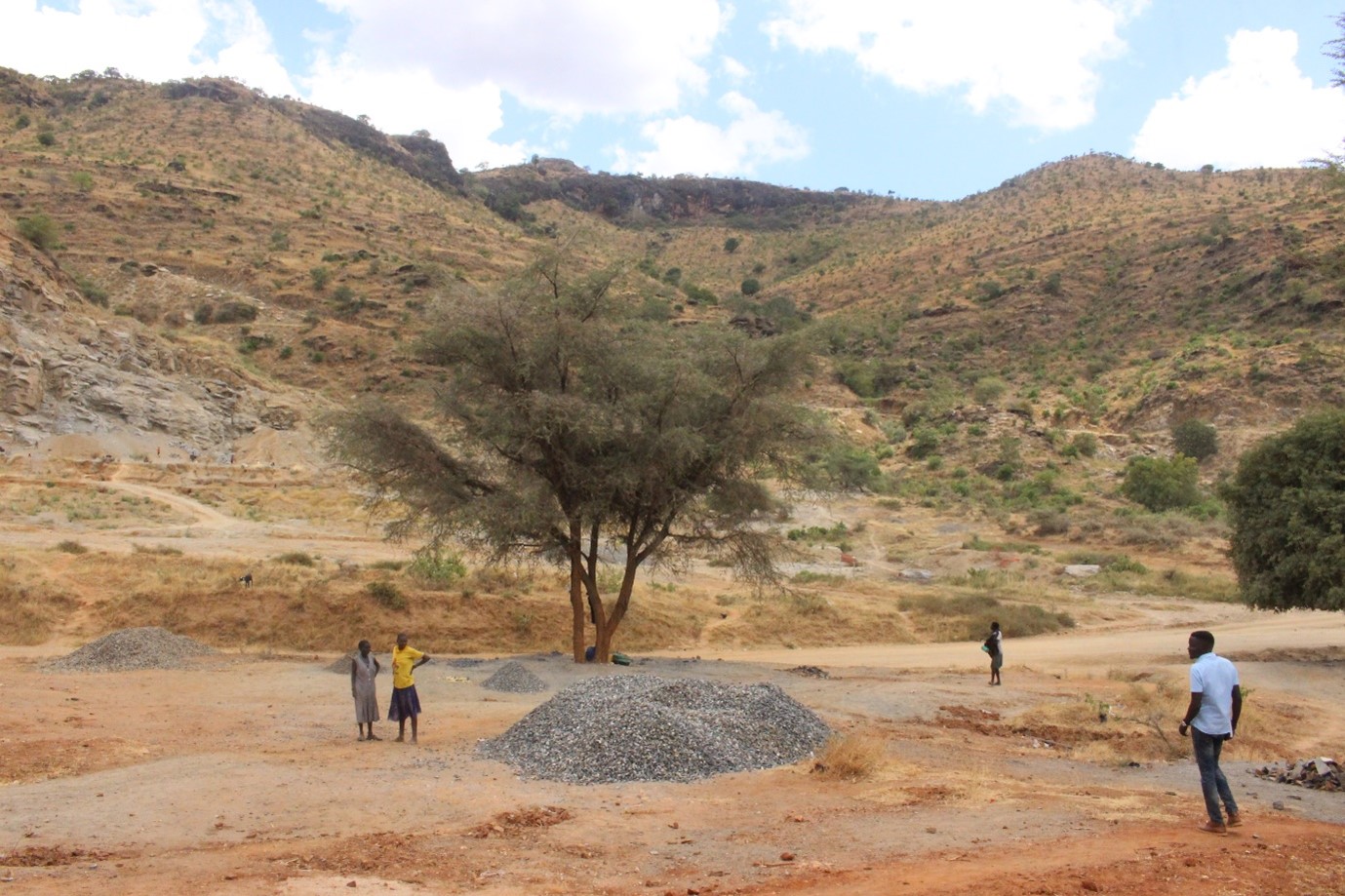Govt, EU and UNDP’s Development Minerals Programme Transforms Lives of Karamoja Women Miners
December 22, 2022

Moroto-Loptuk mining site
Uganda is undergoing a construction boom driven by infrastructural and other industrialization developments that have spurred new and increased demand for development minerals that are mined, processed, manufactured and applied domestically in sectors including manufacturing, building, construction and industry. These include sand, clay, limestone, gypsum, salt, stone aggregate, kaolin and gravel, dimension stones like marble and granite, and semi-precious stones like garnet and tourmaline that have a high level of economic linkage and utilization close to the location where the commodity is mined. The prevalence of development minerals in Uganda is high, and the industry generates an estimated US$350 million annually, directly supporting 390,000 Ugandans, 44 percent of whom are women.
This attests to the potential of the development minerals’ sector to create jobs, spur innovation, and stimulate investment and infrastructure development. Yet if not properly managed, the sector activities such as mining can also lead to environmental degradation, displaced populations, inequality and increased conflict.
The Government of Uganda has put in place policy and legal provisions, and a strategy targeting the artisanal and small-scale mining (ASM) sector, to harness the opportunities that the sector presents.
To maximize the socioeconomic development of Uganda's mining industry, the United Nations Development Programme (UNDP) has worked with the Ministry of Energy and Mineral Development, the Ministry of Trade, Industry and Cooperatives, and others to support the training of various artisanal small-scale mining enterprises (ASMEs) in 25 districts in various facets of business management and financial literacy.
In Karamoja sub-region alone, UNDP has implemented the ACP-EU Development Minerals Programme and trained over 30 Karamoja women miners on how to operate their businesses. An initiative of the African, Caribbean and Pacific (ACP) Group of States, this programme is a collaboration of the European Union and UNDP and seeks to profile and improve the management of development minerals.
Voices of beneficiaries
Since its inception in 2018, the programme has supported ASMEs to enhance productivity, create jobs, increase income, and put in place environmental and social safeguards in and around mining areas.
Two women miners, Miriam Aisu and Lucy Nakiru, have received training and support from the programme for improved skills and income from mining of development minerals. They are both from Loptuk sub-county in Moroto district and speak fondly of how much the programme has transformed their lives.
Miriam Aisu at Loptuk mining site
"I am the Treasurer of the Mount Moroto Women Development Mineral Association,” Miriam Aisu said. “I am delighted to report that this initiative gave me the skills and confidence to negotiate with customers. As a result, I now run a pastry shop across the street. While working at the mine, I also learned how to be healthier and safer,” she added.
Lucy Nakiru at Loptuk mining site
Similarly, a beaming Lucy Nakiru said, "I made the decision to start a mining operation since it was straightforward for me to get started and because I observed that many wealthy inhabitants of our area were seeking hardcore and aggregate stones to construct their houses.” She added, “As a woman, I now at least have some money to spend on food, educational expenses and medical expenses for my four children. I am grateful to UNDP for their assistance which has given me the confidence to launch future businesses, utilizing this one as a launchpad.”
Building forward better from COVID-19
ASMEs in the development minerals industry have increased recovery efforts after experiencing financial strain because of decreased output and other operational disruptions throughout the course of the COVID-19 pandemic. All parties involved are still making concerted efforts to support this economic recovery, by enhancing the livelihood security, resilience, and sustainability of mining operations.
The 2030 Agenda for sustainable development and the Sustainable Development Goals (SDGs) represent the United Nations’ plan of action for social inclusion, environmental sustainability, and economic development. Under this lens, Uganda’s mining industry has an unprecedented opportunity to mobilize human, physical, technological and financial resources to advance the SDGs and to achieve Uganda’s development aspirations.
To deliver on the sustainable development goals and 2030 agenda, UNDP will continue to ensure an inclusive mining sector which benefits Uganda’s economic, social and environmental component of sustainable development, and one that encourages economic expansion, raises tax revenue, creates jobs and aids in the improvement of infrastructure.

 Locations
Locations